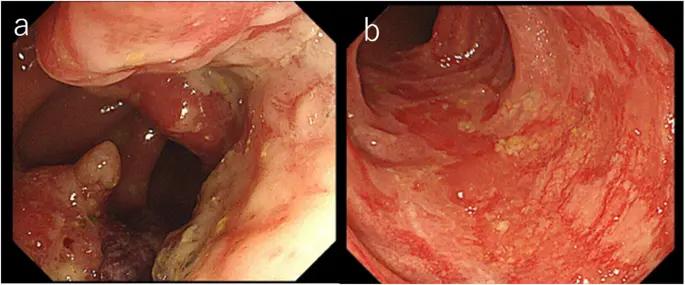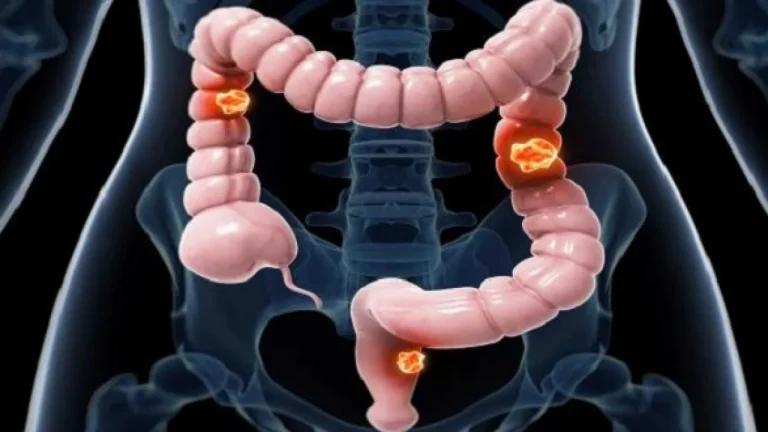
Colorectal cancer also known as bowel cancer, colon cancer or rectal cancer is the third most common cancer in the United States. This disease, if left undetected and untreated, can wreak havoc on the human body, spreading to other organs and compromising one’s overall well-being. However, the good news is that with advancements in screening techniques and treatment options, colorectal cancer is now more treatable than ever before, especially when caught in its early stages.
In this guide, we will look into colorectal cancer, exploring its symptoms, causes, diagnosis, management, and prevention strategies. We will also address the importance of early detection, debunk common myths, and provide valuable resources for those affected by this condition. By the end of this article, readers will have a thorough understanding of this complex disease and the steps they can take to safeguard their health.
Understanding colorectal cancer
Colorectal cancer is a type of cancer that originates in the colon or rectum, which are part of the digestive system. It begins when abnormal cells in the inner lining of the colon or rectum start to grow and divide uncontrollably, forming a cancerous tumour. Over time, this tumour can penetrate deeper into the colon or rectal wall and potentially spread to nearby lymph nodes or other organs in the body.
Colon cancer vs. rectal cancer
While colon cancer and rectal cancer are often grouped together, they are distinct entities with some key differences. Colon cancer arises in the large intestine, the final section of the digestive tract, while rectal cancer develops in the last few inches of the colon, known as the rectum. Despite these anatomical differences, the symptoms, risk factors, and treatment approaches for these two types of colorectal cancer are quite similar.
Colon polyps
Colorectal cancer often begins with the formation of polyps, which are abnormal growths of tissue within the colon or rectum. Not all polyps are cancerous, but certain types, such as adenomatous polyps, have the potential to develop into cancerous tumours over time. This transformation typically takes around 10 years, underscoring the importance of regular screening and early intervention to prevent the progression from polyps to full-blown colorectal cancer.
Symptoms and causes of colorectal cancer
Recognising the signs and symptoms
In the early stages, colorectal cancer may not cause any noticeable symptoms, making it challenging to detect. However, as the disease progresses, various signs and symptoms may arise, including:
- Rectal bleeding or the presence of blood in the stool
- Changes in bowel habits, such as persistent diarrhoea, constipation, or narrower stools
- Abdominal discomfort, including cramps, gas, or a feeling of incomplete bowel movements
- Unexplained weight loss
It’s important to note that these symptoms can also be indicative of other, less serious conditions, so it’s crucial to consult a healthcare provider for proper evaluation and diagnosis.
Underlying causes and risk factors
The exact causes of colorectal cancer are not fully understood, but researchers have identified several risk factors that can increase an individual’s likelihood of developing the disease. These include:
- Lifestyle factors: Smoking, excessive alcohol consumption, a diet high in red and processed meats, and physical inactivity
- Medical conditions: Inflammatory bowel diseases, such as ulcerative colitis and Crohn’s disease, as well as certain inherited genetic disorders
- Family history: Having a close relative (parent, sibling, or child) with colorectal cancer or advanced polyps
- Age: The risk of colorectal cancer increases significantly after the age of 45, with most cases occurring in individuals aged 50 and older
Understanding these risk factors can help individuals take proactive steps to reduce their chances of developing colorectal cancer.
Diagnosing and staging colorectal cancer
Screening and early detection
Regular screening is the key to early detection and prevention of colorectal cancer. Healthcare providers recommend several screening tests, including:
- Colonoscopy: This is the gold standard for colorectal cancer screening, as it allows for the visualisation and removal of precancerous polyps
- Fecal immunochemical test (FIT) and guaiac-based fecal occult blood test (gFOBT): These tests detect the presence of hidden blood in the stool, which can be an early sign of colorectal cancer
- Flexible sigmoidoscopy: This procedure examines the lower part of the colon and rectum using a flexible, lighted tube
- Virtual colonoscopy (CT colonography): This non-invasive imaging test uses X-rays to create detailed images of the colon and rectum
Regular screening, starting at age 45 (or earlier for those with increased risk factors), is crucial for catching colorectal cancer in its earliest, most treatable stages.
Diagnostic tests and staging
If screening tests or symptoms suggest the presence of colorectal cancer, healthcare providers will order additional diagnostic tests, such as:
- Blood tests: These can detect the presence of certain tumour markers, like carcinoembryonic antigen (CEA), which may indicate the presence of colorectal cancer
- Imaging tests: Procedures like CT scans, MRI scans, and PET scans can help visualise the extent of the cancer and determine if it has spread to other organs
- Biopsy: A small sample of the tumour is removed and examined under a microscope to confirm the diagnosis of colorectal cancer
Once the diagnosis is confirmed, healthcare providers will use the TNM (Tumor, Node, Metastasis) staging system to determine the extent of the cancer’s progression. This cancer staging process is crucial for developing the most appropriate treatment plan.
Colon cancer treatment
Surgical interventions
Surgery is the primary treatment for colorectal cancer, with various procedures available depending on the stage and location of the tumour:
- Polypectomy: Removal of precancerous polyps during a colonoscopy
- Partial colectomy: Surgical removal of the affected section of the colon, with reconnection of the healthy portions
- Colostomy: Creation of an opening in the abdominal wall to allow waste to be diverted from the colon
- Radiofrequency ablation: Use of heat to destroy cancerous cells
In some cases, healthcare providers may combine surgical interventions with adjuvant therapies, such as chemotherapy or targeted drug treatments, to enhance the effectiveness of the treatment.
Chemotherapy and targeted therapies
For advanced or metastatic colorectal cancer, healthcare providers may recommend chemotherapy, which uses powerful drugs to target and destroy rapidly dividing cancer cells. Additionally, targeted therapies, such as monoclonal antibody treatments, have been developed to target specific genetic mutations or proteins that drive the growth and spread of colorectal cancer cells.
Radiation therapy
In the case of rectal cancer, radiation therapy may be used, either alone or in combination with other treatments, to shrink the tumour and reduce the risk of local recurrence.
Palliative care
For individuals with advanced or incurable colorectal cancer, palliative care can play a crucial role in managing symptoms, relieving pain, and improving quality of life. This holistic approach focuses on providing comfort and support, rather than curative treatment.
Preventing colorectal cancer
Lifestyle changes
While colorectal cancer cannot always be prevented, several lifestyle changes can help reduce the risk of developing the disease:
- Maintaining a healthy weight and engaging in regular physical activity
- Limiting the consumption of red and processed meats
- Increasing the intake of fruits, vegetables, and whole grains
- Quitting or avoiding the use of tobacco products
- Moderating alcohol consumption
These lifestyle modifications can have a significant impact on an individual’s overall colorectal health.
Screening and early detection
As mentioned earlier, regular screening is the cornerstone of colorectal cancer prevention. By detecting and removing precancerous polyps or catching the disease in its earliest stages, screening can dramatically improve the chances of successful treatment and long-term survival.
Genetic counselling and testing
For individuals with a strong family history of colorectal cancer or inherited genetic disorders, genetic counselling and testing can help identify their risk and guide appropriate screening and preventive measures.
Living with colorectal cancer
Survivorship and support
Navigating the challenges of colorectal cancer can be daunting, but no one has to go through it alone. Cancer survivors, caregivers, and their loved ones can find invaluable support through various resources, including:
- 24/7 cancer helplines that provide information, guidance, and emotional support
- Online communities and support groups where individuals can connect with others who have been affected by colorectal cancer
- Comprehensive resource libraries offer a wealth of information on topics ranging from treatment options to managing side effects
Addressing health disparities
Colorectal cancer does not affect all populations equally. Certain demographic groups, such as Black Americans, face significantly higher incidence and mortality rates compared to their white counterparts. These disparities highlight the need for targeted outreach, increased access to screening and preventive services, and a concerted effort to address the underlying social, economic, and cultural factors that contribute to these inequities.
Glossary of colorectal cancer terms
To help navigate the complex terminology associated with colorectal cancer, we have compiled a comprehensive glossary of commonly used terms, including:
- Adenomatous polyp: A type of polyp that can potentially develop into cancer
- Carcinoembryonic antigen (CEA): A substance that may be found in higher levels in people with certain types of cancer, including colorectal cancer
- Colectomy: Surgical removal of all or part of the colon
- Colostomy: A surgical procedure that creates an opening in the abdomen for waste to be diverted from the colon
- Metastasis: The spread of cancer from the original site to other parts of the body
By familiarising themselves with these terms, individuals can better understand their diagnosis, treatment options, and the overall journey of living with colorectal cancer.
Conclusion
Colorectal cancer is a complex and potentially devastating disease, but with advancements in screening, early detection, and treatment, the outlook for those affected has never been more promising. By understanding the symptoms, risk factors, and prevention strategies, individuals can take proactive steps to safeguard their colorectal health and increase their chances of early detection and successful treatment.
Through continued research, public awareness campaigns, and a commitment to addressing health disparities, the fight against colorectal cancer can be won, one person at a time. By empowering individuals with knowledge and resources, we can work towards a future where colorectal cancer is a preventable and highly treatable disease for all.
Sources
- What Is Colorectal Cancer? | How Does Colorectal Cancer Start? – American Cancer Society
- Colon Cancer: Symptoms, Stages & Treatment
- The Basics: What Is Colorectal Cancer? – Colorectal Cancer Alliance
NowPatient has taken all reasonable steps to ensure that all material is factually accurate, complete, and current. However, the knowledge and experience of a qualified healthcare professional should always be sought after instead of using the information on this page. Before taking any drug, you should always speak to your doctor or another qualified healthcare provider.
The information provided here about medications is subject to change and is not meant to include all uses, precautions, warnings, directions, drug interactions, allergic reactions, or negative effects. The absence of warnings or other information for a particular medication does not imply that the medication or medication combination is appropriate for all patients or for all possible purposes.












